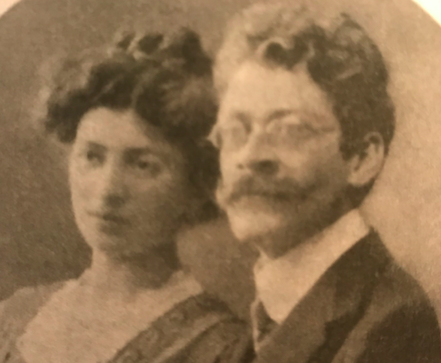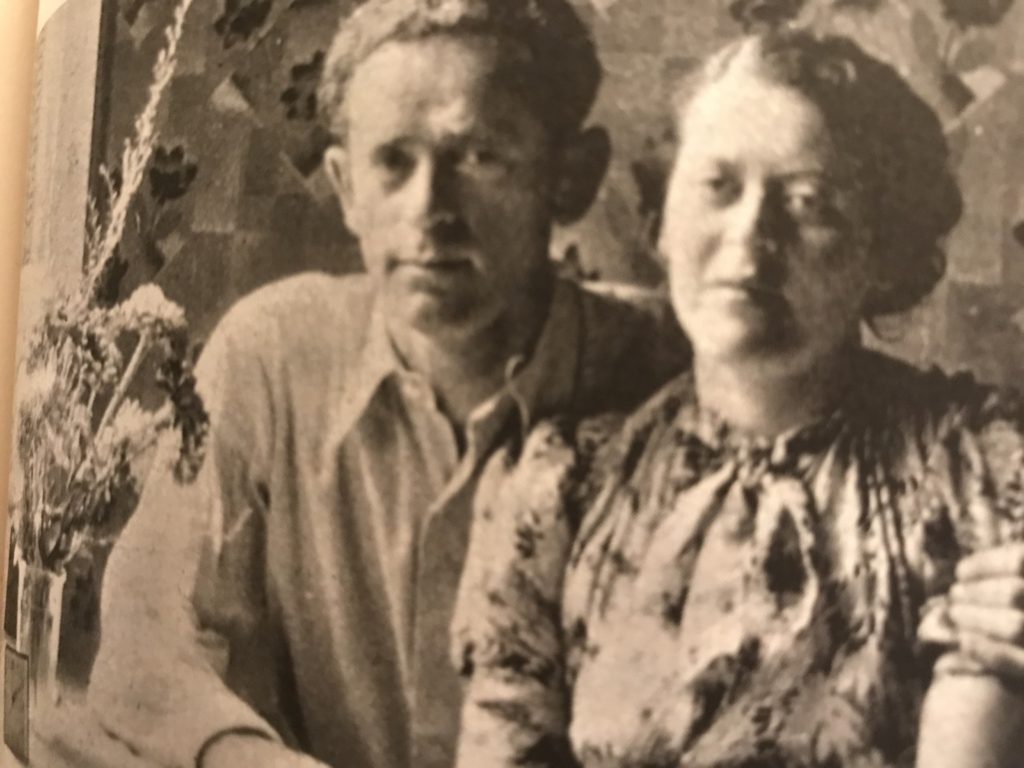The Unanswered Letter Demands an Allegiance to Remembering the Past
By Sue Weston
In her true history of one Jewish family’s devastating World War II experience, award-winning journalist Faris Cassell uses The Unanswered Letter: One Holocaust Family’s Desperate Plea for Help (Regenery History) to explore the untold story of Alfred and Hedwig Berger. In so doing, Ms. Cassell reaches out across generations and brings closure to the couple’s grandchildren.

In 2004, prompted by a random letter that fell into the hands of her husband, Sydney, Ms. Cassell found herself intrigued by the writer, Alfred Berger, who, in 1939, had penned these words to a stranger living in America about whom he knew only one thing: they both shared the same last name: “You are surely informed about the situation of all Jews in Central Europe….By pure chance, I got your address…My daughter and her husband will go…to America….Help us to follow our children….It is our last and only hope.”
The Berger Family
Ms. Cassell began her quest to discover more about this family and their fate as any investigative journalist would. She began by collecting facts about the Bergers, who, in 1938, resided in Vienna.
As the Nazis accelerated their persecution of the Jews, Alfred and Hedwig exhausted their financial resources, their connections with anyone who might offer help to find an escape route to America. By August 1939, when Alfred wrote the letter, the couple had no alternatives left in their frantic effort to escape.
The story unravels as Ms. Cassell’s inquiries take her across the United States and to Austria, the Czech Republic, Belarus, and Israel. Just as a pebble thrown into a body of water creates ripples that slowly reach the shore, Alfred Berger’s letter takes Ms. Cassell on a journey to discover the virtually insurmountable impediments the family faced. Despite all the obstacles, including long queues, delays, and quotas, they managed to maintain their dignity and focus, to continue writing letters to their family, exploring options until the end.
In her search, Ms. Cassell uncovers other preserved letters, some returned unopened, which provide her with threads of information, none of which could have prepared her—or the reader—for what would be discovered as she crisscrosses between the past and the present.

Modern Comparisons
In the book, she chronicles the collision of politics and religion and bears witness to the flagrant disregard for the dignity of human life this couple faced, Ms. Cassell draws parallels to today’s dilemmas. She wonders what would have happened to her if she had been in Vienna in 1939, married to a Jew, and recognizes that “our family, too, would be running for our lives.”
She realizes her story is not confined to the past. “Around the world, ethnic, racial, and political groups still fight and hate. Issues of persecution and prejudice, of refugees and closed doors, are pressing and painful. Holocaust stories still resonate forcefully, thrusting us into the core of the human condition and begs us to consider: Who will repair a broken world?” she says.
Remembering the Past
Alfred’s and Hedwig’s descendants are not so different from many other families of Holocaust survivors and victims. Without a solid connection to the past and no sense of closure, survivors who found safety in the United States, Israel, and elsewhere often feel overwhelming guilt at having abandoned their families when they fled Europe.
The family of Ms. Cassell’s own husband, he tells his wife, lived in denial and refused to explore the past. They did not talk about the Holocaust, he says, adding, “I was protected from it.”
Ms. Cassell’s book makes clear that instead of turning a blind eye and seeking to disconnect from roots, those who survived the Holocaust need to set the record straight and remind the world what the price of genocide entails. Ms. Cassell admits that before writing the book, she, “like most people,” knew little about the Holocaust, “its cruelty and the millions of people lost.”
Her book is a reminder of the devastation caused by fear and hatred. As Jews, we sometimes think the history of the Holocaust is a universally accepted part of human knowledge and understanding. In fact, the bulk of the world depends on books like The Unanswered Letter to bear witness and share our story.
***
Sue Weston is half of Two Sues on the Aisle, which bases its ratings on how many challahs it pays to buy (rather than make) in order to read the book being reviewed.

The Unanswered Letter: One Holocaust Family’s Desperate Plea for Help received 4 challahs.





